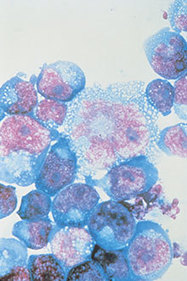An experimental antibody significantly reduced HIV levels in infected people for as long as 28 days. The approach might help to combat a wide range of HIV strains.
In the current study, the researchers evaluated one of these promising monoclonal anti-HIV antibodies in people. The small phase 1 clinical trial included 29 volunteers—17 HIV-infected and 12 uninfected. The study was supported by the Bill and Melinda Gates Foundation, NIH’s National Institute of Allergy and Infectious Diseases (NIAID), and others. Results appeared online on April 8, 2015, in Nature.
The participants received a single intravenous dose (of 1, 3, 10, or 30 milligrams per kilogram of body weight) of the experimental antibody called 3BNC117. The antibody was well-tolerated by all participants. Among those infected with HIV, the 2 lower doses caused small and transient changes in blood HIV levels. The 8 participants who received the highest dose, however, had significant and rapid decreases in HIV. The virus’s resistance to the antibody was variable. In some people, HIV remained sensitive to 3BNC117 for 28 days.
Via Krishan Maggon



 Your new post is loading...
Your new post is loading...








NIH
Dr. Michel C. Nussenzweig of the Howard Hughes Medical Institute at Rockefeller University
At a GlanceA single infusion of an experimental antibody significantly reduced HIV levels in infected people for as long as 28 days.This and similar antibodies might help to combat a wide range of HIV strains.